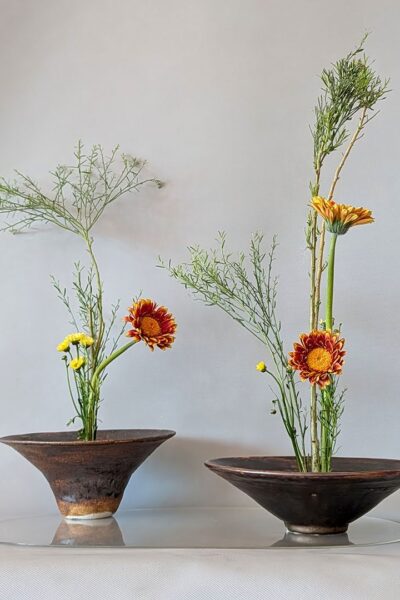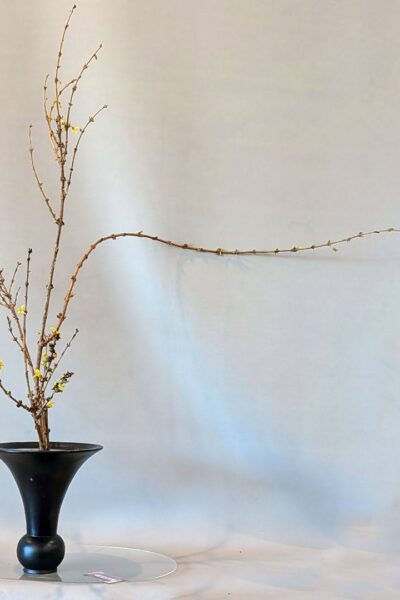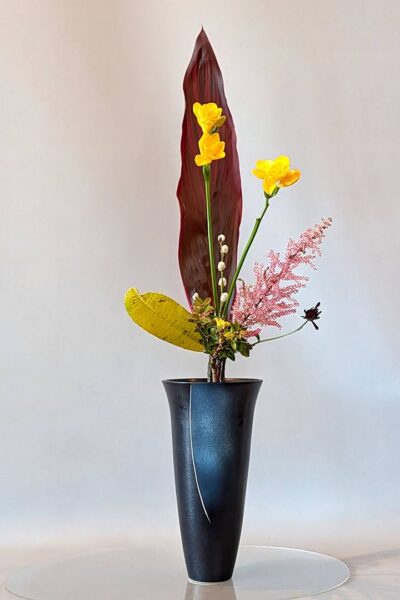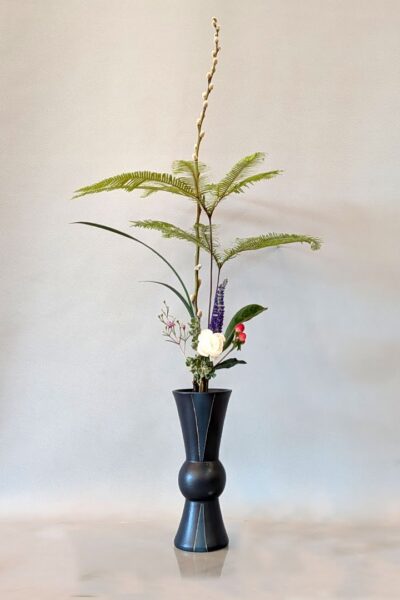















✦FEATURED EVENT✦
Welcome to Ikenobo Ikebana
Ikebana is the ancient Japanese art of flower arranging. The name comes from the Japanese ikeru, meaning “to arrange” and bana meaning “flower.” Ikenobo ikebana had its beginnings in 1462, by a pond at Kyoto’s Rokkakudo Temple where Ikenobo Senkei was recognized as a master of flower arranging. Today the 45th generation Headmaster, Sen’ei Ikenobo, continues to stress the inherent nature of plants, shussho.
The Arizona Chapter of Ikenobo Ikebana was founded in 1964 and was officially chartered in 1974.
The goal of our Arizona Chapter of Ikenobo Ikebana is to continue to strengthen our already established ties with organizations in the community, including other ikebana groups and floral societies, Phoenix Art Museum, and the Japanese Friendship Garden. Through these outreach efforts we plan to increase membership and encourage the study of Ikenobo and the development of teachers.
Want to discover the joys of Ikenobo? Join us for a workshop!
During one of our in-person workshops, a certified teacher will provide guidance through both a lecture and a demonstration of a style of Ikenobo ikebana. Using provided floral materials, students create arrangements which are then reviewed individually by the instructor. Finalized works are photographed and posted on our website. Because this format allows for individualized instruction, beginners as well as experienced arrangers benefit.
In addition we offer Zoom workshops which are also individualized instruction. The teacher prepares a video lecture for students who then send photographs of their arrangements for the teacher’s review. Once modifications are complete, the final photographs are compiled and shared with the entire group at the Zoom workshop.
History of Ikebana
While the act of placing flowers is not unique to Japan, it is only in Japan that flower arranging has been codified creating kado, the flower path. The beginnings of ikebana can be traced to floral offerings created for altars by Buddhist monks who entered Japan from China and Korea in the sixth century. Over the following centuries flower arranging was practiced in the secular sphere as well by aristocrats who decorated their castles and palaces.
In 1445 the head priest at the Rokkakudo Temple in Kyoto, Ikenobo Sengyo, first set down rules for flower arranging, working with the Shogun, Yoshimasa, who wished to formalize flower arranging as a contemplative pursuit, essential to the development of his warriors, the samurai. The samurai knew well the art of war; flower arranging could provide an opportunity to focus and center themselves before battle.
The year 1462 is said to mark the beginnings of Ikenobo ikebana since it was in this year that the head priest, Ikenobo Senkei, arranged flowers in a golden vase and was widely acclaimed for his artistry.
The earliest ikebana style, tatehana, or standing flowers, became more elaborate until by the sixteenth century it had evolved into a floral image of an idealized landscape, a style called rikka, appropriate for the grand drawing rooms of the ruling class. As society changed and dwelling places became more modest, a simplified style, shoka, developed. Continuing to respond to the changing needs of society, the more expressive jiyuka, or free style, sprang up after 1945, and Headmaster Sen’ei Ikenobo created a modern shoka (1977) and a modern rikka (1999).
Today Ikenobo ikebana teaches rikka, shoka, and jiyuka and continues to evolve to meet the ever-changing needs of our modern lives. With its ancient roots, Ikenobo ikebana retains its ability to enrich our lives and to connect us with the natural world.
In Memoriam
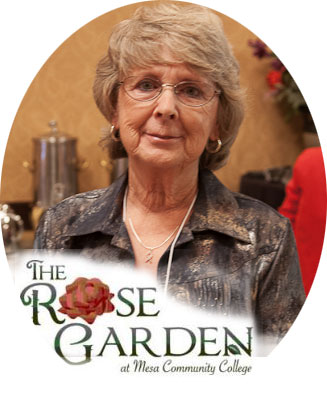
Marylou Coffman,
December 20th, 1940-August 31st, 2024
Long time Special Member and Ikenobo Sensei, Marylou Coffman has transitioned to the other side on Sunday, Aug 31st, 2024. It is understood that she had studied Ikebana in some shape or form for well over 40 years. She became a member of Chapter #9122 once she and her military spouse retired to Phoenix. She leaves behind a daughter-in-law and two grandchildren.
She had studied and obtained up to and including her Level Nine (Kayko) certification from Ikenobo Ikebana prior to becoming ill. Besides teaching she was known for her lovely naturalistic moribana arrangements of all types. But it was roses that had her heart. She was also an Accredited Rose Horticulture and Arrangement Judge for the American Rose Society. She led and promoted the use of roses in our yearly workshop held in the Mesa Community College Rose Garden. After an informative tour of the garden, our members were allowed to select and cut whatever roses they liked to use in their arrangements. Cutting of the flowers is a general no-no, but Marylou had special permission for us on workshop day. She would then instruct our members on tips and tricks when arranging roses and critique the arrangements made that day. Usually fair weather prevailed at this outdoor setting under the trees. We will try to honor her footsteps and continue this practice as long as possible.
She has asked that her arrangement containers and supplies be sold in a special Ginza at one of our workshops and the proceeds be donated to the general maintenance and upkeep of the MCCC Rose Garden. No memorial service has been announced at this time.

